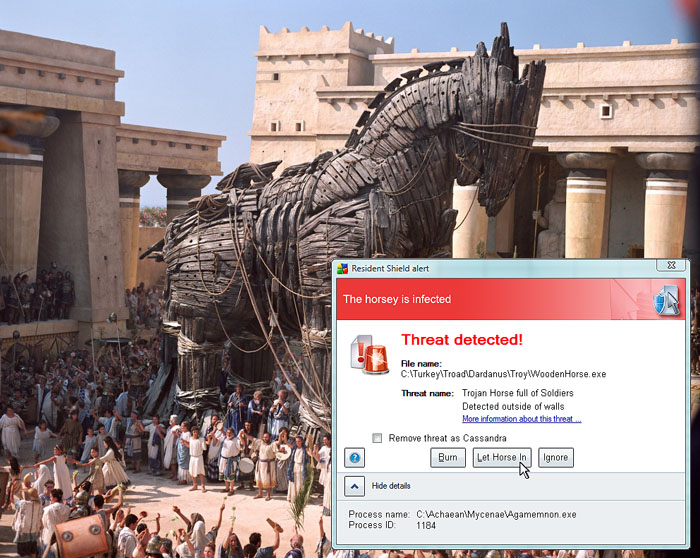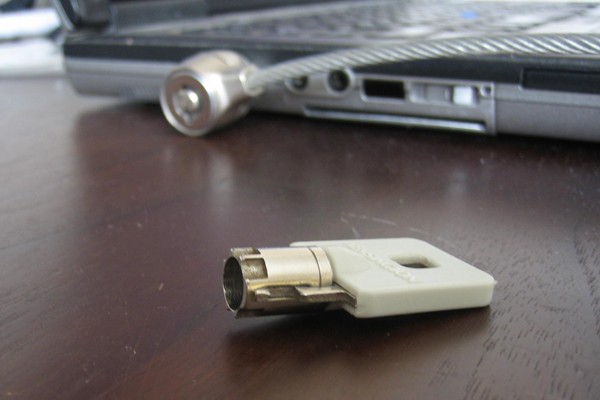Bruce Schneier gives three main reasons:
One, terrorist attacks are harder to pull off than popular imagination -- and the movies -- lead everyone to believe. Two, there are far fewer terrorists than the political rhetoric of the past eight years leads everyone to believe. And three, random minor terrorist attacks don't serve Islamic terrorists' interests right now.
... So, to sum up: If you're just a loner wannabe who wants to go out with a bang, terrorism is easy. You're more likely to get caught if you take a long time to plan or involve a bunch of people, but you might succeed. If you're a representative of al-Qaida trying to make a statement in the U.S., it's much harder. You just don't have the people, and you're probably going to slip up and get caught.
Brilliant:
If the TSA Were Running New York
- All vans or SUVs headed into Midtown Manhattan would have to stop and have their contents inspected. If any vehicle seemed for any reason to have escaped inspection, Midtown in its entirety would be evacuated;
- A whole new uniformed force -- the Times Square Security Administration, or TsSA - would be formed for this purpose;
- The restrictions would never be lifted and the TsSA would have permanent life, because the political incentives here work only one way.
... The point of terrorism is not to "destroy." It is to terrify. And for eight and a half years now, the dominant federal government response to terrorist threats and attacks has been to magnify their harm by increasing a mood of fear and intimidation. That is the real case against the ludicrous "orange threat level" announcements we hear every three minutes at the airport. It's not just that they're pointless, uninformative, and insulting to our collective intelligence; it's that their larger effect is to make people feel frightened rather than brave.
It always strikes me that Israel, which has actual, ongoing terrorism, doesn't x-ray people's shoes.
I'm back in the US, and mostly sure it's Monday evening. Beyond that I'm still recovering from my 14-hour flight yesterday. I'm also waiting for a new hard disk from Dell for my laptop, as the old one died. Fortunately, I back it up religiously.
While I get my creativity back, enjoy someone else's: WW2 As Seen On Facebook.
The Internet experience at Pudong International Airport differs markedly from the experience at our hotel. I've noticed a pattern, whereby unencrypted data, like The Daily Parker, seems to move about an order of magnitude faster than encrypted data, like the HTTPS connection I've got going with my mail server. The interesting part is that both sites are going through the same router back in Chicago. So, either the Web terminal I'm using has a particularly hard time with secure websites, or something is slowing down the mail packets. Hmmm...can't think what that might be...
Compounding my Internet woes, my laptop's hard drive corrupted its boot sector Saturday afternoon. I have no idea how this happened. The Bitlocker recovery key no longer works. I expect tomorrow I'm going to have to install a new hard drive and then install all my software again. This does not make me happy. On the other hand, I have two episodes of Lost to catch up on before Tuesday.
This, anyway, explains why I didn't post anything yesterday, and why the video clip of the world's fastest land vehicle will have to wait until later today. (Because of the International Date Line, even though I have a 13-hour overnight flight, I arrive at O'Hare 30 minutes after I leave Shanghai.)
Two hours until my flight home. Maybe my email will finish downloading by then?
If this story is true, someone needs time in jail to think about civic responsibility:
In a lawsuit filed Tuesday in federal court, [a Pennsylvania] family said the school's assistant principal had confronted their son, told him he had "engaged in improper behavior in [his] home, and cited as evidence a photograph from the webcam embedded in [his] personal laptop issued by the school district."
The suit contends the Lower Merion School District, one of the most prosperous and highest-achieving in the state, had the ability to turn on students' webcams and illegally invade their privacy.
The suit says that in November, assistant principal Lynn Matsko called in sophomore Blake Robbins and told him that he had "engaged in improper behavior in his home," and cited as evidence a photograph from the webcam in his school-issued laptop.
Matsko later told Robbins' father, Michael, that the district "could remotely activate the webcam contained in a student's personal laptop . . . at any time it chose and to view and capture whatever images were in front of the webcam" without the knowledge or approval of the laptop's users, the suit says.
A security professional in New York has investigated the technical claims and found them convincing. He also expanded on the original news story with some circumstantial evidence:
The truly amazing part of this story is what's coming out from comments from the students themselves. Some of the interesting points:
- Possession of a monitored Macbook was required for classes
- Possession of an unmonitored personal computer was forbidden and would be confiscated
- Disabling the camera was impossible
- Jailbreaking a school laptop in order to secure it or monitor it against intrusion was an offense which merited expulsion
When I spoke at MIT about the wealth of electronic evidence I came across regarding Chinese gymnasts, I used the phrase "compulsory transparency". I never thought I would be using the phrase to describe America, especially so soon, but that appears to be exactly the case.
I can't wait to see how this turns out.
Software entrepreneur Joel Spolsky says that's a good start, but only part of it:
[L]et’s stop talking about “backups.” Doing a backup is too low a bar. Any experienced system administrator will tell you that they have a great backup plan, the trouble comes when you have to restore.
And that’s when you discover that:
- The backed-up files were encrypted with a cryptographically-secure key, the only copy of which was on the machine that was lost
- The server had enormous amounts of configuration information stored in the IIS metabase which wasn’t backed up
- The backup files were being copied to a FAT partition and were silently being truncated to 2GB
- Your backups were on an LTO drive which was lost with the data center, and you can’t get another LTO drive for three days
- And a million other things that can go wrong even when you “have” “backups.”
The minimum bar for a reliable service is not that you have done a backup, but that you have done a restore.
As someone who's got reliable, clockwork backups running, and has had them fail for one of the reasons Spolsky listed (and others that he didn't), I think this is tremendously good advice.
I don't know where this came from originally, but...well, look:

And you don't let a convicted hacker near the prison computers, either:
Douglas Havard, 27, serving six years for stealing up to £6.5million using forged credit cards over the internet, was approached after governors wanted to create an internal TV station but needed a special computer program written.
He was left unguarded and hacked into the system's hard drive at Ranby Prison, near Retford, Notts. Then he set up a series of passwords so no one else could get into the system.
How could this be worse? Glad you asked:
The blunder emerged a week after the Sunday Mirror revealed how an inmate at the same jail managed to get a key cut that opened every door.
It's scary when the Mirror starts to sound like the Onion...
(Via Bruce Schneier.
I can't wait to see what they'll have us do after this:
On the evening of Aug. 28, Prince Mohammed bin Nayef, the Saudi Deputy Interior Minister — and the man in charge of the kingdom’s counterterrorism efforts — was receiving members of the public in connection with the celebration of Ramadan....
One of the highlights of the Friday gathering was supposed to be the prince’s meeting with Abdullah Hassan Taleh al-Asiri, a Saudi man who was a wanted militant from al Qaeda in the Arabian Peninsula (AQAP). Al-Asiri had allegedly renounced terrorism and had requested to meet the prince in order to repent and then be accepted into the kingdom’s amnesty program. Such surrenders are not unprecedented....
But the al-Asiri case ended very differently from the al-Awfi case. Unlike al-Awfi, al-Asiri was not a genuine repentant — he was a human Trojan horse. After al-Asiri entered a small room to speak with Prince Mohammed, he activated a small improvised explosive device (IED) he had been carrying inside his anal cavity. The resulting explosion ripped al-Asiri to shreds but only lightly injured the shocked prince — the target of al-Asiri’s unsuccessful assassination attempt.
(Via Bruce Schneier.)
I learned a valuable lesson yesterday: when you lock your computer to your hotel room desk, and you put the cable-lock key in your pocket, you have to remove the key from your pocket before sending the slacks down to the laundry.
This realization crept up on me over a very quiet 90-second period that started when I looked in my room safe for the key and didn't find it there.
I won't keep you in suspense: housekeeping found and returned the key this morning. This is good, because I had no idea how I was going to fit the desk in the overhead compartment on my flight home.
